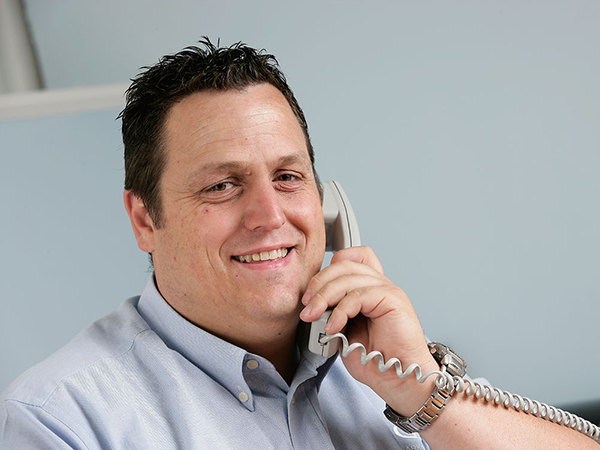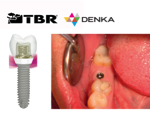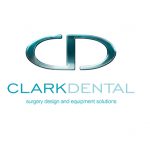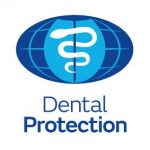
Many of us have a habit of watching television or checking social media on our smartphone just before bedtime. These days, it seems that we are never too far away from artificial light – the benefits of which cannot be underestimated, as it has enabled us to be more productive during the day and night. In the dental practice setting, artificial light has become increasingly relied upon in the delivery of high quality care – not only to help dentists carry out intricate, complex procedures, but also to create a relaxing environment for patients.
For the most part, artificial light is harmless, but scientists continue to find compelling evidence suggesting prolonged exposure to it could detrimentally affect an individual’s sleep patterns and, subsequently, their overall general health. This is a worrying trend, considering that dentists are frequently exposed to intense artificial light on a daily basis – perhaps more so than any other individual.
The effect of artificial light
Contrary to what some might claim with regard to their personal habits, humans have evolved to sleep at night, and it is the natural phase of the sun rising and setting that influences the body’s 24-hour sleep and wake cycle – otherwise known as the circadian rhythm. When it starts getting dark outside, the retina of your eye sends a message to your brain, signalling that it is time to start producing the sleep hormone, melatonin, which triggers a drop in your body temperature to prepare you for sleep. The reverse process happens the following morning, as your eye detects the light of the rising sun and wakes your body up.[i]
With increased use of artificial light, most people are now exposed to light no matter whether it is day or night, so it can be easy for the body to get confused over when it should be asleep or awake. The effects of artificial light are so powerful that sleeping with the lights on can decrease melatonin levels by as much as 85%, making it difficult to fall into a deep sleep.[ii]Our eyes are especially sensitive to ‘blue light’, which is not only produced by electronic devices, but also energy-efficient LED and fluorescent light bulbs that are typical of most dental care settings.
Blue wavelengths in both natural and artificial lighting can boost your attention and mood, helping you to stay awake and alert. In fact, research shows that our brains are more active when we are exposed to bright ambient light.[iii]This is a beneficial process during the working hours of the day, but one that can be very disruptive if you are attempting to sleep. Researchers have found that 6.5 hours of exposure to blue light suppresses melatonin for twice as long as green light does, shifting the circadian rhythm by 3 hours as opposed to 1.5 hours.[iv]
Continual disruption of our internal body clock can have far-reaching, adverse effects on our general health. This is an issue associated with the prevalence of sleep disorders such as insomnia, for example. It has also been linked to more serious complications such as depression, obesity, and cardiovascular disease.[v]Night-time shift work – which can be particularly disruptive to the circadian rhythm – is even recognised as a risk factor for the development of cancer.[vi]More research is required to fully substantiate these claims, but it is hard to ignore the fact that dental professionals could be putting themselves at an increased risk of health-related problems, as a result of excessive exposure to artificial light.
Adapt your environment
Thankfully, there are steps practitioners can take in order to limit the amount of artificial light that they and their patients are exposed to. Where possible, it is important that dentists spend as much time as they can outside in natural light. Additionally, ‘smart’ light bulbs can be installed throughout the practice. The colour and intensity of these bulbs can be controlled via mobile apps, enabling you to avoid unnecessary exposure to harsh artificial light that can interfere with the circadian rhythm. This can also help to create a warm, welcoming, and comfortable environment for patients.
In some cases, it might be worth upgrading your surgery with the help of an experienced surgery design team. Clark Dental not only supplies a wide range of dental equipment packages with advanced lighting features, it also provides a bespoke surgery design service. With the team’s extensive knowledge and expertise, you could benefit from designing a practice that utilises as much natural light as possible, but also capitalises on the benefits of artificial light – all of which are essential to facilitating the delivery of high quality dentistry.
Lights ultimately play a significant role in the way we live. So long as we remain aware of how artificial light can negatively effect us, we can adopt appropriate measures to minimise our exposure to it and ensure a good night’s sleep for the benefit of long-term general health.
For more information, call Clark Dental on 01268 733 146, email info@clarkdental.co.ukor visit www.clarkdental.co.uk
References
[i]Tuck. (2017) How Light Affects Your Sleep. Link: https://www.tuck.com/light-and-sleep/. [Last accessed: 29.10.18].
[ii]Gooley, J. J., Chamberlain, K., Smith, K. A., Khalsa, S. B. S., Rajaratnam, S. M. W., Reen, E. V., Zeitzer, J. M., Czerisler, C. A. and Lockley, S. W. (2011) Exposure to Room Light before Bedtime Suppresses Melatonin Onset and Shortens Melatonin Duration in Humans. The Journal of Clinical Endocrinology & Metabolism. 96(3): E463-E472. Link: https://doi.org/10.1210/jc.2010-2098. [Last accessed: 29.10.18].
[iii]Chellapa, S. L., Gordijn, M. C. M. and Cajochen, C. (2011) Can light make us bright? Effects of light on cognition sleep. Progress in Brain Research. 190: 119-133. Link: https://orbi.uliege.be/bitstream/2268/171525/1/Chellappa_Lightandsleep_2011.pdf. [Last accessed: 29.10.18].
[iv]Harvard Health Publishing. (2012) Blue light has a dark side. Link: https://www.health.harvard.edu/staying-healthy/blue-light-has-a-dark-side. [Last accessed: 29.10.18].
[v]Vann, M. R. (2013) Too Much Light: Ruining Not Just Your Sleep But Your Health Too. Everyday Health. Link: https://www.everydayhealth.com/sleep/too-much-light-ruining-not-just-your-sleep-but-your-health-too.aspx. [Last accessed: 29.10.18].
[vi]Yuan, X., Zhu, C., Wang, M., Mo, F., Du, W. and Ma, X. (2018) Night Shift Work Increases the Risks of Multiple Primary Cancers in Women: A Systematic Review and Meta-analysis of 61 Articles. Cancer Epidemiology, Biomarkers & Prevention. 27: 25-40.
















